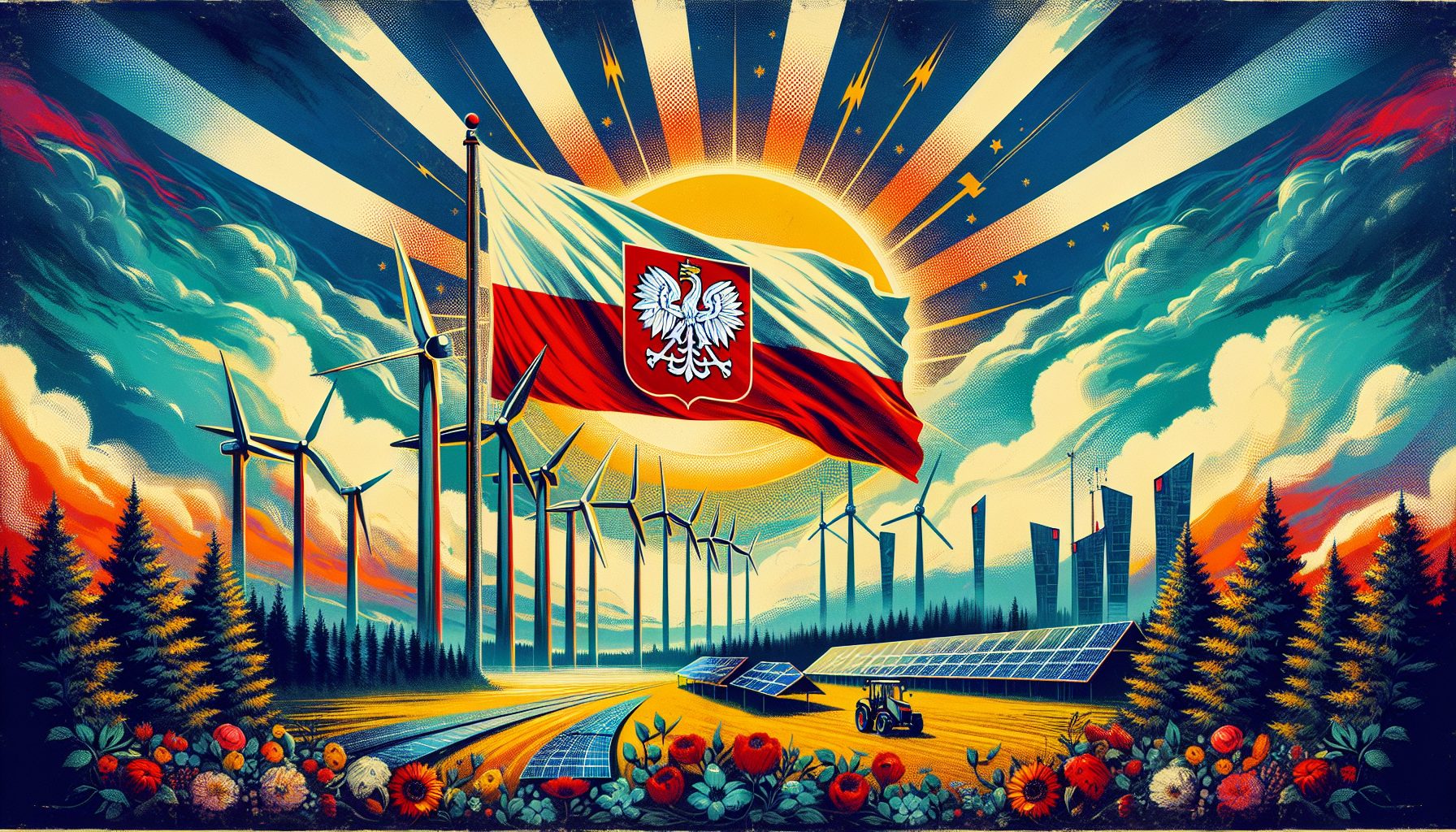Acquisition of renewable energy projects
On Monday, Abu Dhabi Future Energy Company (Masdar) announced the successful acquisition of eight hybrid renewable energy projects in Poland, in partnership with Finnish renewable energy developer and fund manager Taaleri Energia. The strategic alliance aims to expand Poland’s renewable energy sector, which currently depends heavily on coal for power generation. The acquired projects, comprising solar and wind energy, are expected to contribute significantly in reducing Poland’s reliance on fossil fuels and align with the nation’s efforts to transition towards a sustainable energy future. The collaboration between Masdar and Taaleri Energia highlights the growing international support and investment for the development of clean energy solutions in Poland.
Combined solar and wind projects
The acquired renewable energy projects include a combination of solar photovoltaic (PV) and onshore wind technologies and are anticipated to have a total capacity of over 1 gigawatt, according to UAE state news agency WAM. This substantial capacity highlights the potential of renewable energy in meeting the growing global demand for clean and sustainable power. In addition to reducing greenhouse gas emissions and combating climate change, the implementation of these large-scale renewable energy projects will also create numerous job opportunities and stimulate economic growth in the concerned regions. Furthermore, the increasing affordability of solar PV and wind technologies will drive the transition towards renewables, positioning them as viable alternatives for conventional energy sources to meet the ever-increasing power requirements.
Supporting European Union’s objectives
The joint acquisition of these hybrid renewable energy projects by Masdar and Taaleri Energia signifies a crucial step in the worldwide transition towards sustainable energy sources. Both companies are dedicated to the expansion and development of the renewable energy landscape in Poland, in line with the European Union’s ambitious climate and energy objectives. This strategic partnership will not only promote the growth of clean energy in the region but also strengthen the collaboration between companies with shared goals for a sustainable future. Harnessing the combined expertise and resources of Masdar and Taaleri Energia, the joint venture aims to leverage Poland’s vast potential for renewable energy generation, thereby driving down greenhouse gas emissions and fostering a greener economy.
Innovation and capital partnership
The cooperation between Masdar, a prominent global renewable energy provider, and Taaleri Energia, recognized for its renewable energy project financing expertise, creates the ideal blend of innovation and capital for the successful execution of these projects. This strategic partnership will not only accelerate the development and implementation of sustainable energy solutions but also contribute significantly to the global transition towards greener economies. By merging Masdar’s advanced technology know-how with Taaleri Energia’s financing expertise, the collaboration is set to revolutionize the renewable energy sector and pave the way for a more sustainable future.
Diversifying energy sources in Poland
Consequently, this collaboration will considerably contribute to diversifying Poland’s energy sources while reducing its carbon footprint and encouraging a more sustainable future. Moreover, this partnership not only strengthens the nation’s commitment to environmental responsibility but also promotes innovation in harnessing renewable energy resources. Furthermore, by expanding Poland’s energy portfolio, it bolsters the country’s energy security and ensures a stable supply for years to come.
First Reported on: reuters.com
FAQs
Who are the companies involved in the acquisition of renewable energy projects in Poland?
Masdar, the Abu Dhabi Future Energy Company, and Taaleri Energia, a Finnish renewable energy developer and fund manager, have partnered to acquire eight hybrid renewable energy projects in Poland.
What is the goal of this partnership?
The strategic alliance aims to expand Poland’s renewable energy sector, which currently depends heavily on coal for power generation, with a focus on solar and wind energy. This will help reduce Poland’s reliance on fossil fuels and align with the nation’s efforts to transition towards a sustainable energy future.
What types of renewable energy projects are being acquired?
The acquired projects include a combination of solar photovoltaic (PV) and onshore wind technologies, which are anticipated to have a total capacity of over 1 gigawatt.
How will these renewable energy projects impact Poland’s economy?
These large-scale renewable energy projects will help reduce greenhouse gas emissions, create numerous job opportunities, and stimulate economic growth in the concerned regions. The increasing affordability of solar PV and wind technologies will drive the transition towards renewables as viable alternatives for conventional energy sources.
How does this partnership support the European Union’s objectives?
Masdar and Taaleri Energia’s joint acquisition of these hybrid renewable energy projects aligns with the European Union’s ambitious climate and energy objectives. This partnership will promote the growth of clean energy, strengthen collaborations between companies with shared sustainable goals, and leverage Poland’s potential for renewable energy generation.
What is the significance of combining Masdar’s and Taaleri Energia’s expertise?
Merging Masdar’s advanced technology know-how and Taaleri Energia’s financing expertise will accelerate the development and implementation of sustainable energy solutions, contributing significantly to the global transition towards greener economies.
How will this collaboration affect Poland’s energy security and carbon footprint?
This collaboration will contribute to diversifying Poland’s energy sources, reducing its carbon footprint, and promoting innovation in harnessing renewable energy resources. Moreover, it will enhance Poland’s energy security by expanding its energy portfolio and ensuring a stable supply for years to come.

